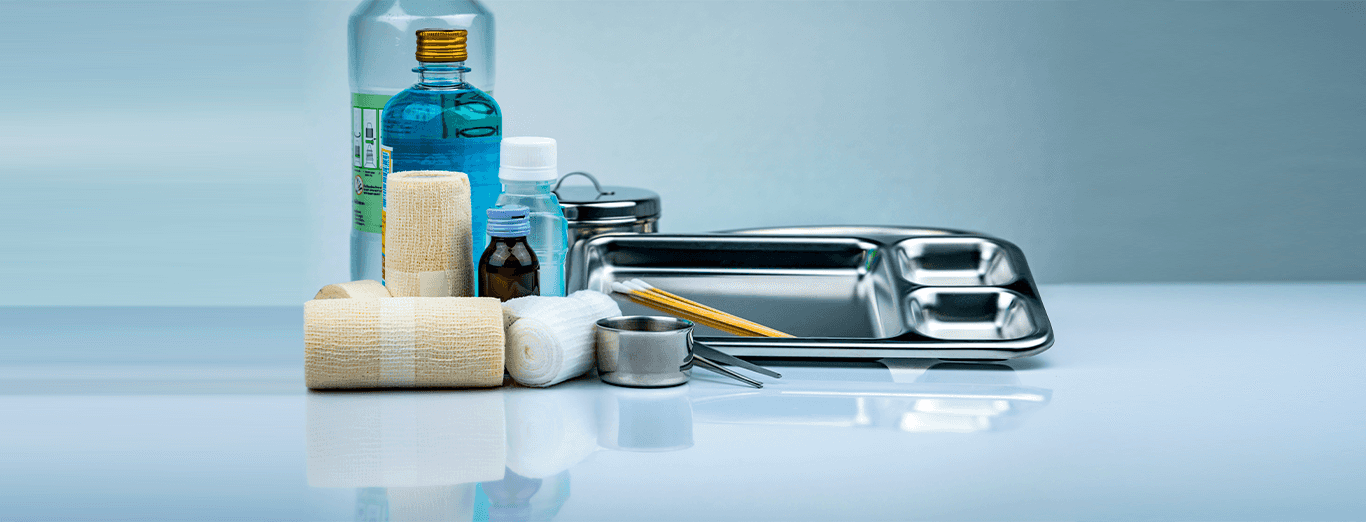
Skilled Nursing, Right at Your Doorstep
Our certified nurses provide professional medical care in the comfort of your home, ensuring you receive hospital-quality treatment without the stress of travel
Comprehensive Care Plans
From post-operative care to chronic condition management, our nursing services are tailored to meet your specific health needs, promoting faster recovery and better outcomes
Trusted Professionals, Compassionate Support
With rigorous training and background checks, our nurses are not only skilled but also empathetic, offering both medical expertise and emotional support
Patient Testimonials
surgical wound infection
An infection might develop in the surgical wound if there is an incision made in the skin during the procedure. The majority of infections of surgical wounds appear 30 days following surgery.
Infected surgical wounds may be red, painful, or blistering to the touch, and they might be dripping pus. You may feel ill and have a fever.
Preventing infection after surgery is among the most crucial things you can do. An infection can hinder your ability to heal, leave you feeling miserable, and in rare instances, lead to significant problems.
Your incision, your blood, or the region around your wound can all serve as the starting point for an infection.
Your possibilities of healing post-surgery without an infection will be considerably increased by a variety of minor actions but properly washing your hands and often is among the most critical of all of them.
wound infections have different levels
Minor: It is limited only to the skin area.
Deep: The infection penetrates the muscle and tissue along with the skin.
Organ/space: The deep infection affects the organ and area where you underwent surgery.
most common causes of a surgical wound infection
Infections from surgical wounds can come from:
- the transfer of skin-surface bacteria to the surgical wound
- internal body bacteria or pathogens from the area where the procedure was conducted
- germs that are present in your surrounding environments, such as those on contaminated surgical equipment or a healthcare professional’s hands.
you are more likely to get signs of surgical site infection if
- Having poorly managed diabetes
- Having issues with your immunity
- are fat or overweight
- If you smoke
- Take steroids
- Have an operation that takes more than 60 minutes
preventing surgical wound infections
Discuss with your surgeon what steps you can take to reduce the probability of a wound infection if you’re undergoing surgery. In particular, if you have diabetes or some other medical problem, it’s crucial to stop consuming tobacco products prior to surgery and to report your health records to the medical team.
Additionally, refrain from shaving or waxing in the area of the skin where the surgeon intends to make the incision.
Avoid touching your wound or surgical site, despite your curiosity. Be careful to strictly adhere to your doctor’s post-operative wound infection care instructions and guidance.
speak to your doctor if you experience any of the following symptoms or signs of surgical site infection:
- fever,
- heat,
- pain,
- pus,
- redness, or
- tenderness close to the wound.
top ways to avoid surgical wound infections:
Hand Hygiene is Important
The most essential step you can take is to regularly and carefully wash your hands. Carefully means using soap, lukewarm water, and scrubbing for a minimum of 30 seconds.
The first line of defence against infection is hand washing. If your hands don’t seem dirty, hand sanitizer is usually a useful option.
Proper Antibiotics Course
Take antibiotics as directed since they may stop an infection in its tracks. For continued infection-free status, a complete prescription must be taken.
You run the risk of contracting an illness form that is resilient to your antibiotic if you quit consuming it too early.
Keep a Dry and Clean Wound Area
To avoid infection, it’s essential that you keep your wound clean. If your surgeon allows it, taking a hot shower and washing your wound with a light antibacterial soap is the safest method for keeping it clean. As soap can irritate your skin that is still healing, make sure to thoroughly wash it off. Prior to wrapping your wound with a clean, dry bandage, let it totally dry out. Covering your incision might not be necessary; just do so if your surgeon has suggested you to.
It is not advised to clean the wound, remove any scabs, use harsh cleansers like peroxide and alcohol, or leave a wet covering on your wound.
Avoid the Painkiller Habit
Although applying ointments and lotions to your wound might well be alluring, you shouldn’t do so unless your doctor has advised you to do so. In addition, keep your healing incision free of any lotions, ointments, peroxide, alcohol, and strong soaps.
They frequently cause dryness and inflammation, which might result in infection.
summing up
One of the most vital things you can do post-surgery is to spend the time needed to avoid infection. Surgical wound infections can just be challenging to treat, hinder healing, and delay recovery and return to normal activities. As experts say, prevention is always safer than cure, and this is particularly true when it comes to infections.
achieve the better outcome of the surgical wound treatment with portea
Infections happen in wounds that take longer than usual to heal, making them challenging to treat. So, it’s imperative to travel to the hospital frequently for checkups and to get your wounds dressed. Patients who need wound care can receive it at home in comfort thanks to surgical wound care nursing services. They have received training in both pain treatment and surgical wound dressing.
We provide surgical wound infection treatment at Portea for a variety of wound types, including wound infections, postoperative wounds, complicated wounds, vascular wounds, and chronic wounds.
Well-trained care assistants are available from Portea to handle your post operative wound infection in accordance with your doctor’s recommendations.
Doctor Consultation
Nursing
Physiotherapy
Trained Attendant
Elder Care
Mother & Baby Care
Lab Tests
Medical Equipment
Speciality Pharma
Critical Care





